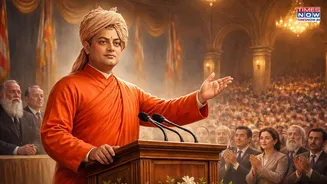Early Financial Lessons
Soha Ali Khan's financial journey began with a unique practice initiated by her father, where she received a sum of Rs 50 every October. This tradition,
unlike a typical allowance, was a strategic move aimed at teaching her the value of money and the importance of financial planning from a young age. Instead of just giving pocket money without context, her father utilized this symbolic gesture to introduce the concept of budgeting and delayed gratification. The annual allocation wasn't immediately spent; instead, it served as a means to understand how to save for the long term. This early exposure to managing resources set the foundation for her later financial decisions and provided her with a fundamental understanding of how money works. The Rs 50 each year was more than just pocket money; it was a lesson in financial literacy, embedding the idea of careful spending and saving from an early age.
The October Tradition Explained
The October tradition of giving Soha Ali Khan Rs 50 was part of a broader educational approach by her father. The specific month was likely chosen to align with festivals or other significant events, indirectly teaching her to plan for expenditures. It was a calculated plan to make her aware of the money's significance. This planned introduction to financial responsibility helped Soha understand concepts such as setting financial priorities. Rather than a spontaneous gift, the fixed amount each year facilitated an environment where she could learn to budget and make deliberate choices about how she spent her small funds. This annual allowance transformed into a tangible lesson in financial responsibility. It was a well-thought-out effort to impart valuable life skills, which would influence her approach to handling money as she grew up. The consistency of this financial ritual also likely instilled discipline and foresight in her.
Shaping Financial Perspectives
The early financial lessons from her father had a lasting impact on Soha Ali Khan. This early introduction to financial planning laid the foundation for her current perspective on managing funds. Receiving a set amount annually emphasized the need for careful consideration when spending and encouraged an understanding of the relationship between savings and expenditures. Soha's experiences as a child shaped her current approach. This early education not only taught her how to budget but also developed her mindset toward long-term financial management. This groundwork allowed her to become adept at navigating the financial complexities of the adult world. It instilled in her an appreciation for financial independence and the power of financial planning, influencing her present-day financial strategies. Consequently, her early exposure to money became an important aspect of her financial acumen.






















